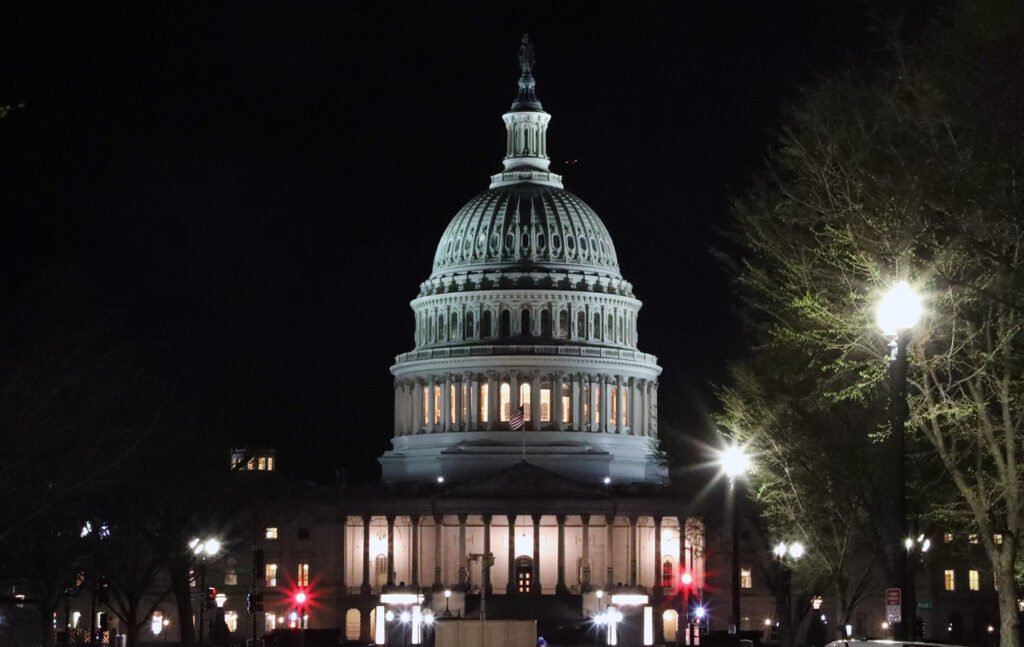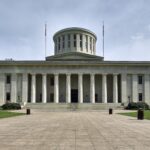
NASHVILLE (BP) – Scripture. The Baptist Faith and Message. Resolutions.
Topics come up in conversation, whether online, over coffee or at a family reunion. Guides are helpful, and someone must put in the time to develop them within a trustworthy framework.
“In everything we do, we want to be representing the policies important to Southern Baptists,” said Hannah Daniel, director of public policy for the Ethics & Religious Liberty Commission. “It must be aligned with Scripture and grounded in where the Baptist Faith and Message speaks on it. We also want to see how Southern Baptists have spoken on the issue through resolutions or other actions at the annual meeting.”
Daniel spoke to Baptist Press following the ERLC board’s recent meeting. At that gathering, President Brent Leatherwood emphasized the staff’s desire for the entity to connect more strongly with churches.
Drawing from resolutions passed by Southern Baptists at the annual meeting is an important part of listening to those concerns.
“We want to take hold of what we know from Southern Baptists and Scripture and apply that to public policy and evaluate different policy positions, seeing how they line up with what Southern Baptists have said and what they care about,” Daniel said. “Then merge those things together.”
The ERLC recently sent a letter urging Congress to consider priorities important to Southern Baptists in current funding negotiations for an appropriations bill. That letter included a document outlining areas of concern and support among the 12 appropriations subcommittees.
There have been nearly 10,000 pieces of legislation filed this session, Daniel shared. The ERLC sifts through those bills to find and analyze those that touch the entity’as focus areas – life, marriage and family, religious liberty and human dignity. A “thorough review” is also given of the 24 appropriations bills (12 each from the House and Senate) – each one several hundred pages.
Do the math. That’s a lot of reading, note-taking, analyzing, discussing and writing – as well as a lot of coffee – for four people, Daniel said.
Bills can touch on various issues about life, religious liberty, gender and marriage, but it’s often not obvious.
“We go through and find where taxpayer dollars are being used in ways that Southern Baptists would find objectionable,” Daniel said. “We call those things out and urge our legislators to right those wrongs before the final bill comes forward.”
That process often includes comparing last year’s bills, reading them side by side or using particular word searches. Her group has reviewed 23 of the 24 appropriations bills currently under negotiation.
“You have to comb through it,” she said. “They can be pretty sneaky in how they work stuff in. It’s a lot of work but our team works hard.”
In his Sept. 10 address to trustees, Leatherwood spoke of the importance of the ERLC’s speaking from churches and “into the public square” in order for elected officials to hear the concerns of Southern Baptists.
The relationship is reciprocal, in a way. Listening to churches – whether through face-to-face discussions or studying resolutions – gives the ERLC a window through which it should place its attention. Resources come in the form of articles, podcasts, magazines and other media.
And while goings-on in Washington, D.C., command a lot of attention, resources are developed throughout the year.
Often those come about when a topic suddenly trends. A recent example came in February when the Alabama Supreme Court ruled that frozen embryos conceived through in vitro fertilization (IVF) were to be considered children. Many legislators were caught flat-footed on how to respond and asked the ERLC to help.
There is another challenge in making resources understandable, whether you’re a Ph.D. or volunteer Sunday School teacher trying to understand the latest topics like IVF.
Daniel said the goal is to be succinct, yet thorough. That can often be a challenging needle to thread.
“There’s a teaching principle that if you can’t explain something clearly, you don’t understand it yourself,” she said. “These issues are complex and there are often nuances that can get lost. That’s why we work in our team to develop explainer resources that are easily digestible, but we’ll also have deeper, analytical policy resources that we send to our partners. We’re trying to minister to both of those audiences.”





















